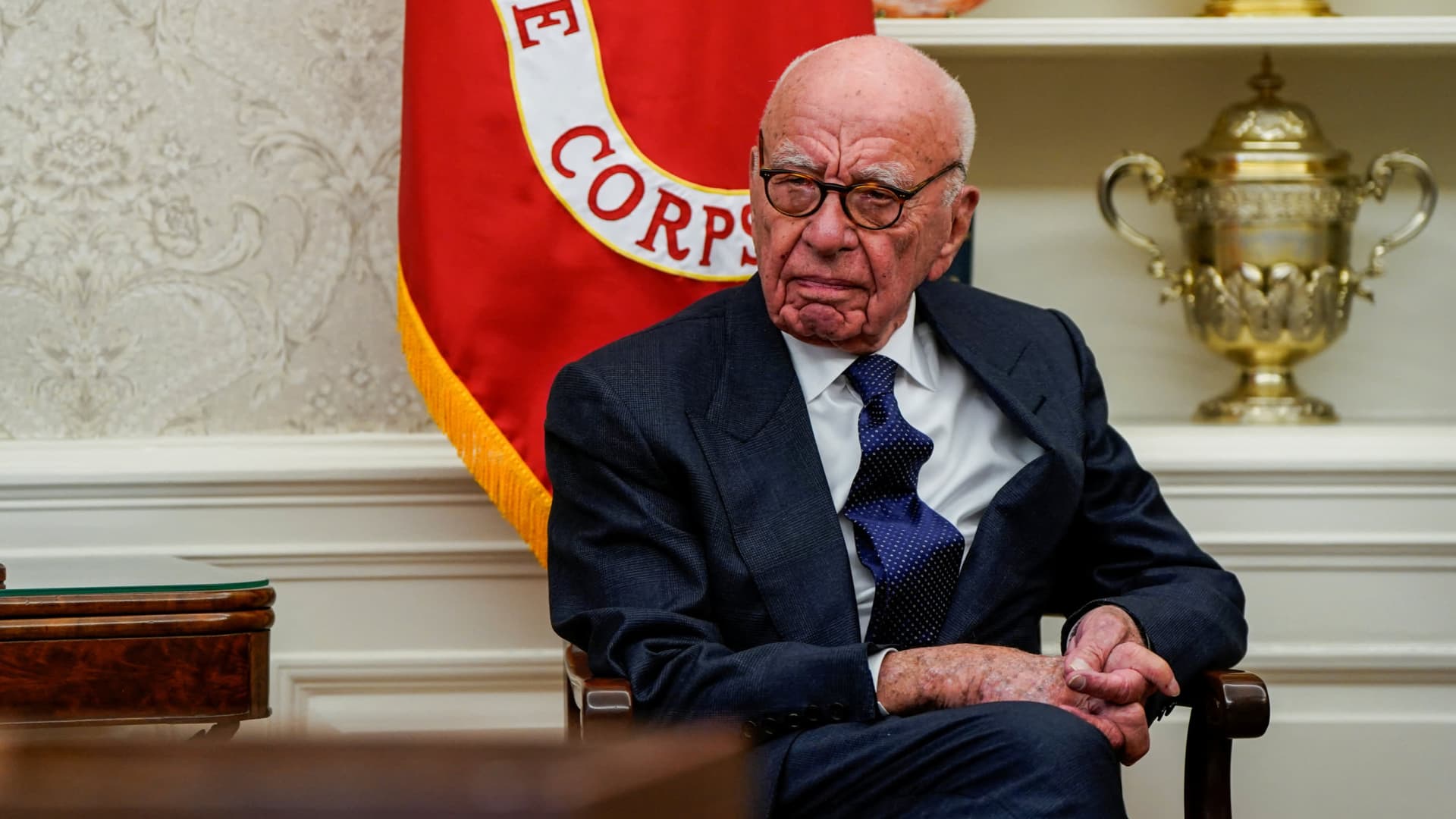Trump Hosts Rupert Murdoch at White House Dinner Amid $10 Billion Lawsuit Over Epstein Letter
Trump Hosts Rupert Murdoch at White House Dinner Amid $10 Billion Lawsuit Over Epstein Letter
By
Junia Wells
Last updated:
October 23, 2025
First Published:
October 23, 2025

Rupert Murdoch looks on, at the White House, in Washington, U.S. Feb. 3, 2025. | Elizabeth Frantz | Reuters
White House Dinner Raises Eyebrows
President Donald Trump recently hosted media mogul Rupert Murdoch, his wife Elena Zhukova, and top executives from News Corp at a White House dinner, even as he pursues a $10 billion defamation lawsuit against Murdoch and The Wall Street Journal. The lawsuit stems from the Journal’s report alleging Trump sent a risqué 50th birthday letter to the late convicted sex offender Jeffrey Epstein.
According to reports, the dinner, held last Thursday, also included New York Post editor Keith Poole, Post columnists Miranda Devine and Douglas Murray, News UK CEO Rebekah Brooks, The Sun editor-at-large Harry Cole, Vice President JD Vance, and White House aide Susie Wiles. Guests reportedly enjoyed a meal of chicken and gravy.
The Defamation Lawsuit
Trump filed his defamation suit on July 18, targeting Murdoch, News Corp CEO Robert Thomson, the Journal, and the reporters who published the story. The lawsuit claims that the article falsely portrayed Trump as sending a sexually explicit letter to Epstein, framed with drawings of a naked woman. Trump has consistently denied authoring the letter, calling the story “fake” on social media.
Trump’s legal team argues that the Journal prioritized sensationalism over truth, publishing “false, defamatory, and malignant statements” about the former president. The suit seeks damages and asserts that Murdoch and the Journal failed in journalistic ethics by publishing the story despite prior warnings.
Murdoch’s Legal Defense
Murdoch’s lawyers have filed a motion to dismiss the case, citing evidence that the letter released by the House Oversight Committee matches the Journal’s report. They argue that Trump’s longstanding friendship with Epstein, combined with his history of “bawdy public statements,” makes the article consistent with his public persona and therefore not defamatory.
The legal motion highlights that Trump previously referred to Epstein as a “terrific guy” who “likes beautiful women as much as I do,” reinforcing their defense that the story aligns with Trump’s known behavior and reputation.
A Complex Relationship
The reported White House dinner illustrates the complicated and sometimes contradictory relationship between Trump and Murdoch’s media empire. While Fox News and the New York Post have historically supported Trump’s political agenda, the ongoing defamation lawsuit represents a rare public conflict.
The dinner occurred just five days before Trump’s legal team submitted a detailed response opposing Murdoch’s motion to dismiss, signaling that personal interactions between Trump and Murdoch have not impacted the legal battle.
Implications for Media and Politics
The juxtaposition of a private White House dinner with an active $10 billion lawsuit underscores the intertwined nature of politics and media in the U.S. It raises questions about influence, access, and the boundaries between personal relationships and legal accountability.
As the lawsuit progresses, both Trump and Murdoch’s media holdings remain under scrutiny, with potential implications for journalistic standards, political reporting, and the handling of high-profile defamation cases.
Popular articles
Subscribe to unlock premium content
The Unexpected Growth of Artisan Mushroom Farming in Europe

How Urban Rooftop Gardening Became a Luxury Lifestyle Trend

The Tiny Island of Sark and Its Million-Dollar Eco-Tourism Model

The Unexpected Growth of Artisan Mushroom Farming in Europe

How Urban Rooftop Gardening Became a Luxury Lifestyle Trend

The Unexpected Growth of Artisan Mushroom Farming in Europe









